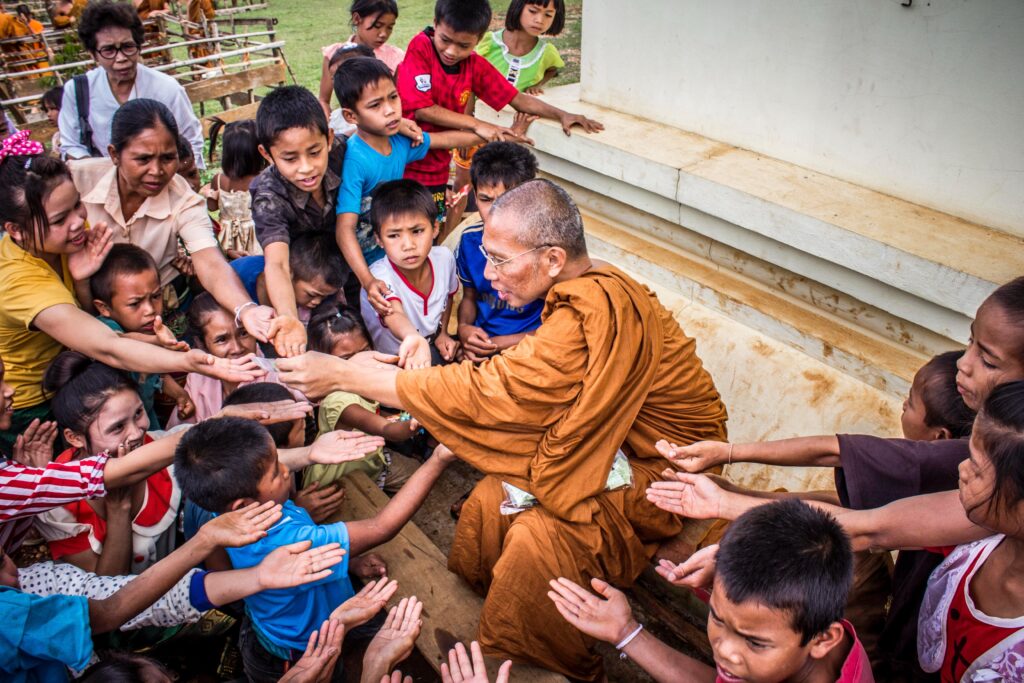How can the teachings of Karuna, embodying Buddhist compassion, be reflected in the efforts to work for peace in wartime? It’s a question that beckons us to explore the intertwining of spiritual wisdom and the challenges faced by the community in Wahat al-Salam — Neve Shalom.
In the aftermath of a devastating massacre in the South of the country and the ongoing crisis in Gaza, the community finds itself at a crossroads. The need for true peace, equality, and basic human rights becomes not just a distant ideal but a pressing necessity for the survival of all in the region. As we delve into the situation, guided by the teachings of Karuna, let’s dissect the actions and initiatives taken by the community in Wahat al-Salam — Neve Shalom, particularly in the context of working for peace during wartime.
1. Dialogue and Compassion in the Face of Trauma
Karuna, or compassion, is at the core of Buddhist teachings. In Wahat al-Salam — Neve Shalom, the recognition of trauma and the need for healing is evident. The village engages in open dialogues and discussions, understanding that in times of crisis, communication becomes a crucial tool for fostering understanding. The emphasis on respect and openness to each other’s grief, fears, and reactions echoes the compassionate approach advocated in Buddhism.
2. Healing Sessions and Prayer for Peace
The community responds to the mental health needs of its members, especially children, by organizing healing sessions. The commitment to support one another during the crisis is a practical manifestation of Karuna. The act of village Muslims gathering to pray for those in the line of fire and for peace reflects a shared human concern that transcends religious and cultural boundaries.
3. Mindfulness and Education
In the face of closed schools due to the war, the school principal takes a proactive role. Mindfulness lessons are organized online, reaching out to children and families who need encouragement. This commitment to education, even in challenging times, aligns with the Buddhist principle of compassionately contributing to the well-being of others. The focus on reopening schools gradually and the emphasis on personal interaction for younger children underscore the importance of human connection.
4. The Role of the School for Peace
The School for Peace (SFP) plays a pivotal role in the community’s response. The dedication of the staff to continuously work, adapt, and reach out to their network exemplifies the spirit of Karuna. Offering assistance to those in need, organizing dialogue courses between different communities, and engaging in environmental activism courses demonstrate a commitment to building bridges and fostering understanding — key aspects of Buddhist compassion.
5. Unity in Diversity
The community faces the challenge of preserving its values while increasing security. The willingness of village members to volunteer for sentry duty is a collective effort to ensure safety, reflecting a sense of responsibility and care for one another. The acknowledgment that the immediate crises will pass, but the commitment to a shared path emphasizes the enduring nature of compassion and unity.
6. International Outreach and Communication
In the midst of turmoil, the community doesn’t isolate itself but actively engages with the international community. The formation of a communication group and interviews with foreign media demonstrate a desire to share their message of peace and compassion globally. This outreach aligns with the Buddhist idea of extending compassion beyond individual communities to contribute to the greater good of humanity.
In conclusion, the teachings of Karuna, rooted in Buddhist compassion, permeate the actions and initiatives of the community in Wahat al-Salam — Neve Shalom as they navigate the challenges of working for peace in wartime. The commitment to dialogue, healing, education, unity, and international outreach all reflect a profound understanding that compassion is not just a personal virtue but a guiding principle for building a harmonious and peaceful society, even in the face of adversity.
